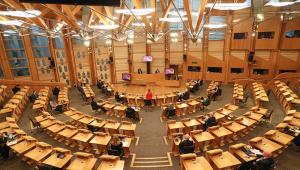
Woking town centre. Image © basphoto/Shutterstock
The statements of accounts for 2019-20, 2020-21 and 2021-22 were presented to the council’s audit and governance committee on 29 July – with the delay in preparing them being put down to a “combination of factors” including the “complexity of the council’s financial position and assessment of council investments”.
The statements cover a period during which the council was investing huge amounts of money (compared with its relatively tiny annual revenue budget) in housing and regeneration projects.
A foreword for the 2019-20 accounts noted the council invested £357m in its investment programme and capital projects that year alone – compared with an approved revenue budget of £14.3m.
The council said the newly published statements “are an important milestone in the council getting back on track with its financial management”.
Dale Roberts, Woking Borough Council’s portfolio holder for finance, said: “Preparation of these annual statements of accounts is a significant step towards rebuilding our financial accountability. We continue to challenge and address the decisions of the past to get our house in order.
“There is however still much to do. Work continues on the council’s outstanding accounts and consolidating those of its wholly owned subsidiaries.
“Preparation of these draft accounts places the council in a stronger position to complete the remaining annual accounts and are an important milestone in our move to more robust financial reporting.”
The accounts so far relate only to the borough council itself, rather than the group accounts, including subsidiary companies to which it lent hundreds of millions of pounds – which are expected to follow later this year, including all outstanding years until 2023-24.
Cllr Dale Roberts’ comments come as the council reckons with the aftermath of huge asset write-downs and a Section 114 notice.
Woking’s former interim finance director issued a Section 114 notice last year.
The council’s additional minimum revenue provision – after being under-calculated for more than a decade – was nearly six times its core funding.
Woking’s external auditors at BDO said they would seek to complete the audit of the 2019-20 accounts by 30 September this year (with a qualified or disclaimed opinion seen as likely), and will follow the government’s backstop plan for the remainder.
In May 2023, the then-Department for Levelling Up, Housing and Communities published the outcome of its non-statutory external assurance review into Woking Borough Council’s finances, investments, and related governance.
The secretary of state considered the council was failing to comply with its best value duty under the Local Government Act 1999.
In June Brendan Arnold, the then Section 151 officer, issued the council with a Section 114 Notice as the council found itself in £1.8bn of debt and core funding of just £16m.
“There is no prospect that the council will balance its budget in 2023-24, 2024-25 or the successive years without external intervention on a very large scale,” he wrote.
Minimum revenue provision has been under-calculated since 2007-08, and the additional charge to the revenue account will this year be in the region of £95m, before dropping to about £75m per year in the future.
Woking was found to have been using a business model that meant its development companies would return accounting losses “over a long period of time” – and given the council does not have sufficient revenue budget to fund these losses, it has been doing so through Public Works Loan Board borrowing.
This borrowing has been used for both construction purposes and for revenue purposes, the latter of which is not allowed.
The statements can be read in the public documents pack relating to the meeting.











